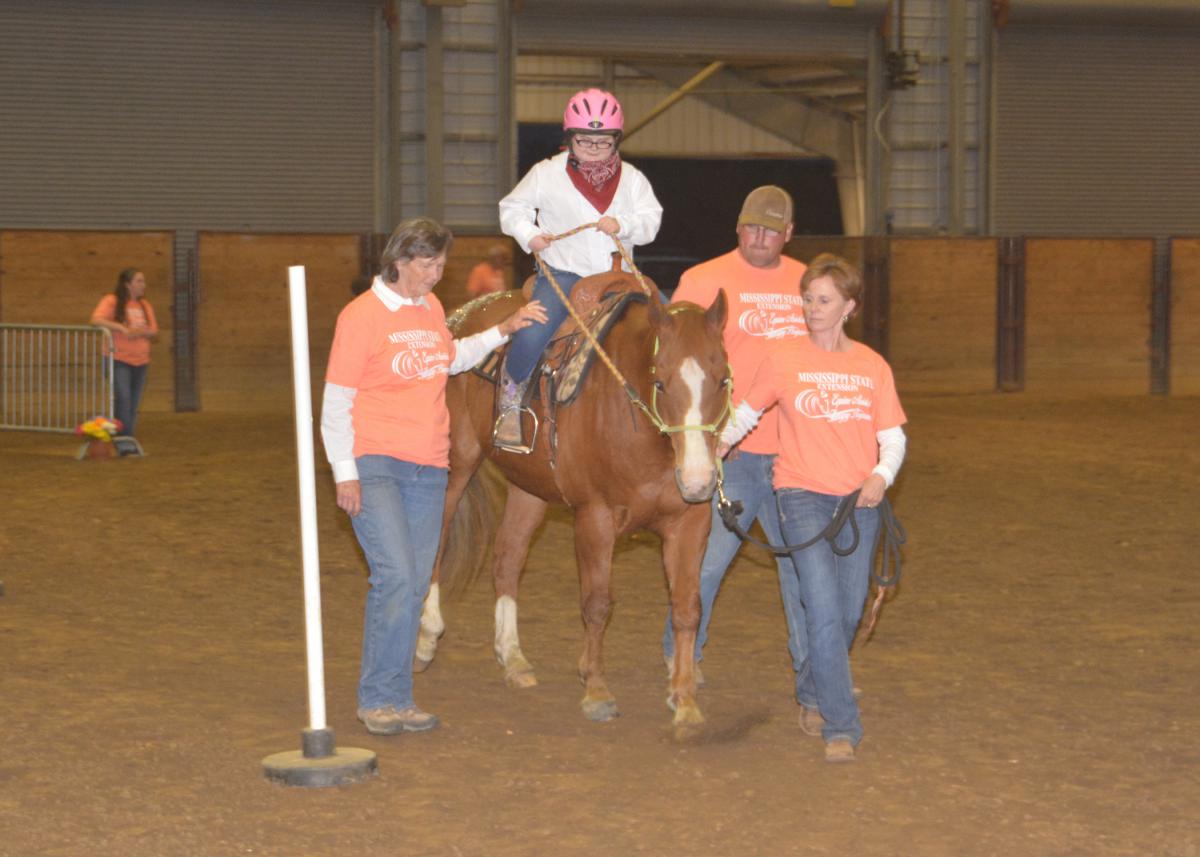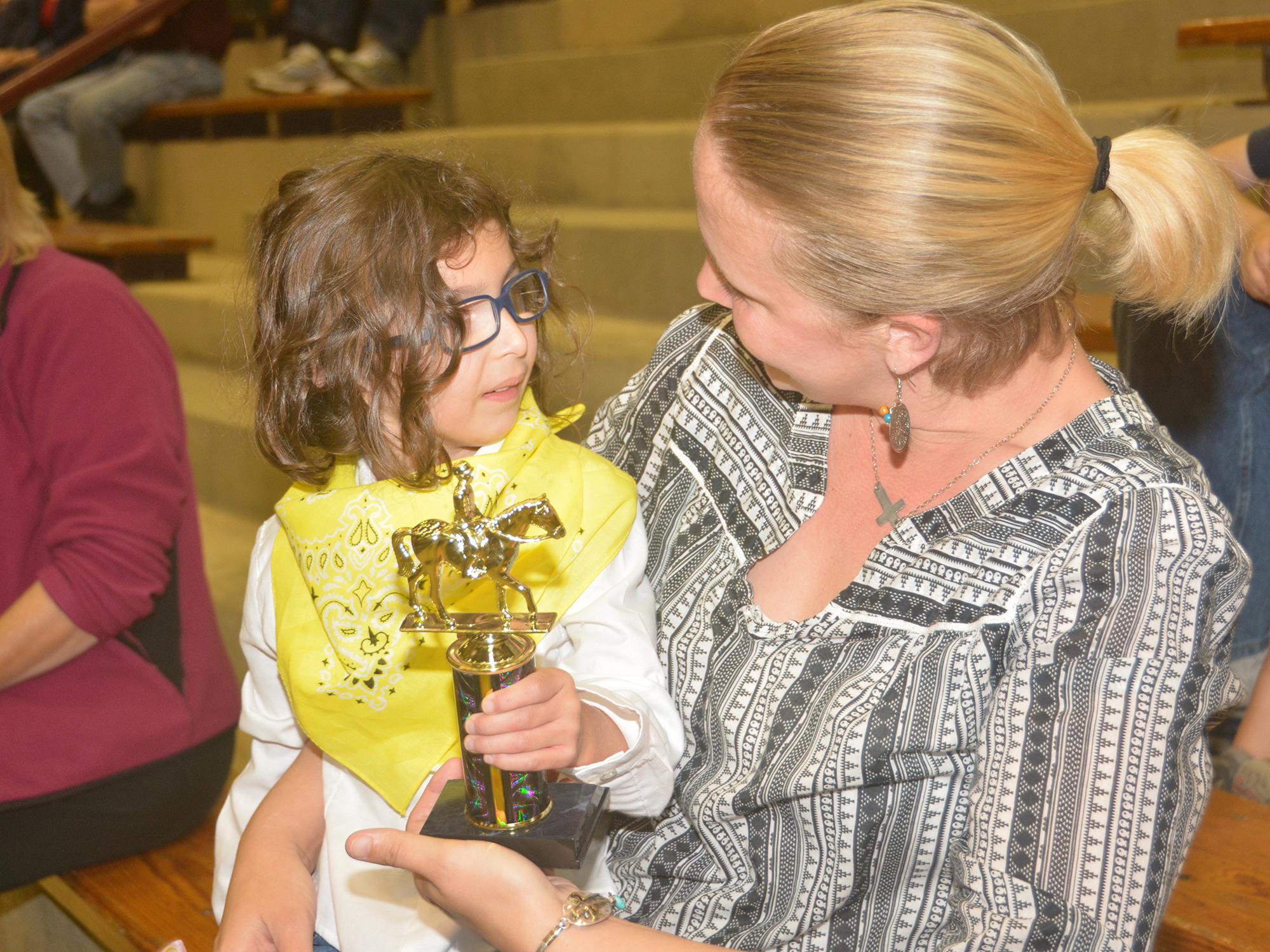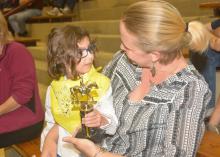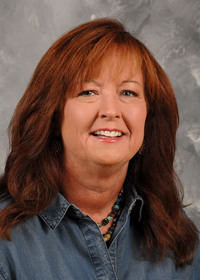Information Possibly Outdated
The information presented on this page was originally released on April 22, 2016. It may not be outdated, but please search our site for more current information. If you plan to quote or reference this information in a publication, please check with the Extension specialist or author before proceeding.
Therapeutic riding spurs on friendships
STARKVILLE, Miss. – Therapeutic horseback riding is about much more than physical therapy.
Cassie Brunson, coordinator of the Mississippi State University Extension Service Therapeutic Riding and Activity Center, said participants first come to the program for the exercise, but they stay for the relationships.
“They recognize the physical benefits almost immediately, but the often unexpected rewards are the friendships that develop and the mental health improvements that revolve around the equine environment,” Brunson said. “The relationships may be between the riders and volunteers, other riders or the horses.”
During the recent Therapeutic Riding Expo, almost every rider, parent and volunteer praised the enjoyment they receive from other participants, including the horses.
Kylie Grace Robertson, a young rider from Hamilton, said she loves to bring treats to her favorite horse.
“I bring him apples and carrots, and he loves them,” the second-grader grinned.
 Ji Ji Pridmore leads an “equine therapist” named Fred around a pole, while Kylie Grace Robertson of Hamilton communicates her commands with the reins. Side walkers Fay Ray and Lantz Stewart assist on April 19, 2016, at the second annual Therapeutic Riding Expo at the Mississippi Horse Park, located south of the Mississippi State University campus. (Photo by MSU Extension Service/Linda Breazeale)
Ji Ji Pridmore leads an “equine therapist” named Fred around a pole, while Kylie Grace Robertson of Hamilton communicates her commands with the reins. Side walkers Fay Ray and Lantz Stewart assist on April 19, 2016, at the second annual Therapeutic Riding Expo at the Mississippi Horse Park, located south of the Mississippi State University campus. (Photo by MSU Extension Service/Linda Breazeale)Her mom, Casey Robertson, said the arena provides a place for all the riders to fit in. The riding improves Kylie Grace’s gross motor skills and lifts her moods.
“The volunteers know just how to help the kids,” Casey Robertson said. “They offer the right encouragement and make exercise fun.”
Matthew Molina said his 5-year-old daughter, Nora, also focuses her love on her equine therapist, a brown horse named Fred.
“She is constantly talking about Fred,” her dad observed. “I’ve seen a big difference in her balance. It has improved tremendously.”
Nora’s teachers at the T.K. Martin Center for Technology and Disability at MSU have also noticed the benefits.
“After our students go out and ride, their coordination and movements improve. They also have big smiles planted on their faces,” said Leslie Earnest, a research associate at the center. “I have no idea how it works, but we can also see an improvement in their concentration and ability to stay focused on lessons.”
Brunson said much of the credit goes to the army of volunteers who assist in classes held throughout the week at the 4-H Elizabeth A. Howard arena, which is located at the Therapeutic Riding and Activity Center in West Point. About 130 volunteers assist with the 45 to 50 riders enrolled in the program.
“Each rider has a minimum of three volunteers assisting during the hour he or she is on the horse,” Brunson said. “We conduct about 15 classes, four days a week each semester. These volunteers are so selfless and generous with their time and energy. They love interacting with the riders and seeing the many benefits the horses bring to each participant.”
Greg Fulgham is one of the volunteers involved in the program. His two children, Lena Kate and Jake, also volunteer.
“My family is involved with horses at home, so we are comfortable assisting from that standpoint,” Fulgham said. “It’s neat to see the kids interacting with the riders and developing relationships. Horses have a way of leveling the playing field. Everyone moves the same once they are in the arena.”
For more information on the MSU therapeutic riding program, contact Brunson at cbrunson@humansci.msstate.edu.





